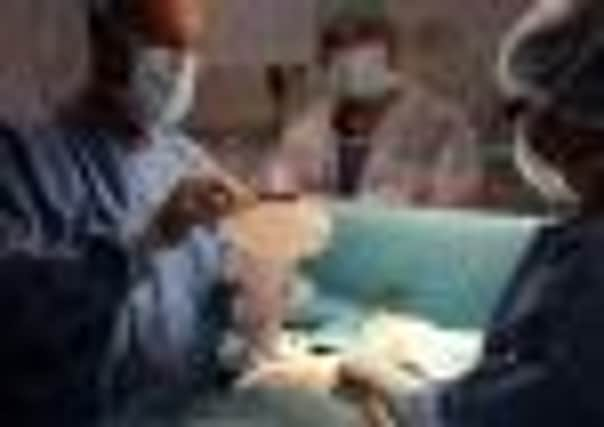Thousands of women unaware of faulty breast implants, Scots surgeon warns


Awf Quaba, who practises at Edinburgh’s private Spire Murrayfield Hospital, said although his surgery kept thorough records, this would not be the same for many patients.
They will be left with the anxiety of not knowing whether their implants were made by French firm Poly Implant Prothese, and having no way of knowing if they should be removed as a precaution.
Advertisement
Hide AdAdvertisement
Hide Ad“A good number of clinics are no longer in existence and a good number of the surgeons are no longer in the country,” Mr Quaba told The Scotsman. “Lots of patients travelled abroad to have the enlargement and no longer have their records. There will inevitably be a large group who are unable to find out.”


Without records, it would only be possible to work out if an implant was made by PIP by removing it and examining it, using surgery. The implants, made using non-medical grade silicone, are at the centre of a worldwide alert.
France, Germany and the Czech Republic have urged anyone with the implants to have them taken out, but the UK has so far said there is no evidence those in Britain should follow suit. Mr Quaba, widely regarded as one of the UK’s leading plastic surgeons, thinks a national register should be set up.
“Every patient with a breast implant should be registered and it should be the responsibility of the surgeon and the hospital,” he said. “I think we should have a national register so that if we have any similar problems we can very easily track patients effected and deal with them.”
He also believes women in the UK should be wary of going overseas for breast augmentation operations. “This is one of the most common operations carried out abroad,” he said. “I think women should be careful. In situations like this, if somebody in Edinburgh decided to go and have a PIP implant in Poland and another woman had the same operation in Edinburgh, they would have a completely different level of stress now.
“The one in Edinburgh will be treated now with no extra cost, but that isn’t the case for the other woman.”
Women who have had breast implants have posted messages on online sites about the anxiety of not knowing what type they had.
One said: “I had my breast implants done in October 2001 and I have no idea if the implants are PIP or not. The clinic no longer exists, so I have no-one to ask.
Advertisement
Hide AdAdvertisement
Hide Ad“I don’t have the money to get the implants removed and replaced. I tried writing to the original surgeon who did the surgery, but he is in Italy and did not respond.” Mr Quaba and his colleagues were attempting to trace and contact every woman who had a PIP implant at Murrayfield.
The private hospital stopped using PIP implants in 2007 after Mr Quaba became worried about the rupture rate and irritation caused by the silicone, which France says was designed for use in mattresses.
Mr Quaba said he warned the UK regulator, the Medical and Healthcare Products Regulatory Agency, as long ago as 2006 about his concerns, but no action was taken. He believes it is “the right thing to do” to offer patients replacement implants even if there is not any obvious physical problem with their existing set.
“There are two levels of concern. There are physical changes, but the second level is how much anxiety and worry the patient is going through. That is also a significant concern.”
It was revealed on Friday that 4,000 Scots are thought to have had PIP implants, out of 40,000 across the UK. All are believed to have had them from private clinics. Some other private clinics, including BMI Healthcare and Nuffield Health, have now come forward to say they will remove and replace them free of charge.
Health secretary Nicola Sturgeon said she expected private surgery providers to remove and replace the implants if clinically necessary.
“Where a private provider is no longer in operation or does not offer appropriate care, the NHS will support removal of implants where that is the clinically appropriate course of action,” she said.
A spokeswoman for the Department of Health said the issue of regulation of the sector, including whether a national database was necessary, were being examined in a review by an expert group
Meanwhile, law firms, including personal injury firm Thompsons Solicitors, are arguing that patients could be entitled to compensation on top of having the implants taken out and replaced.